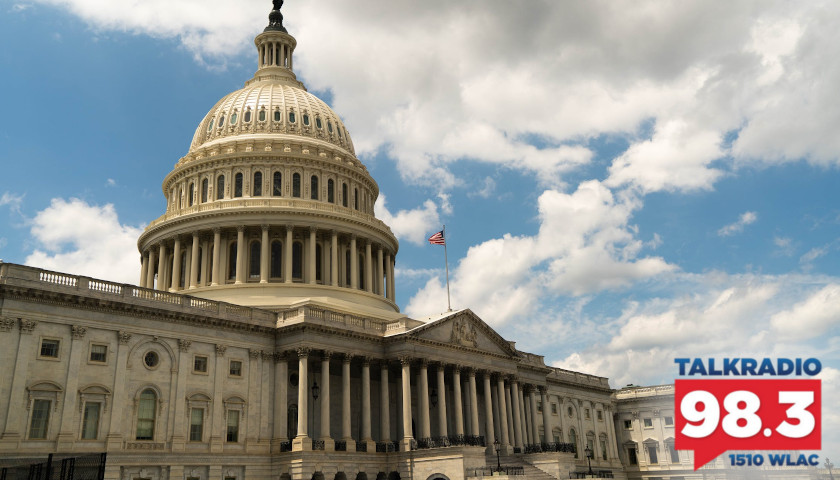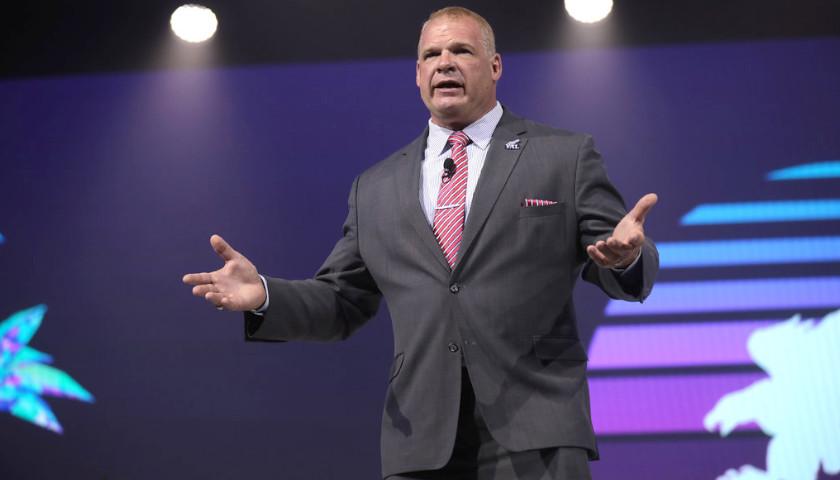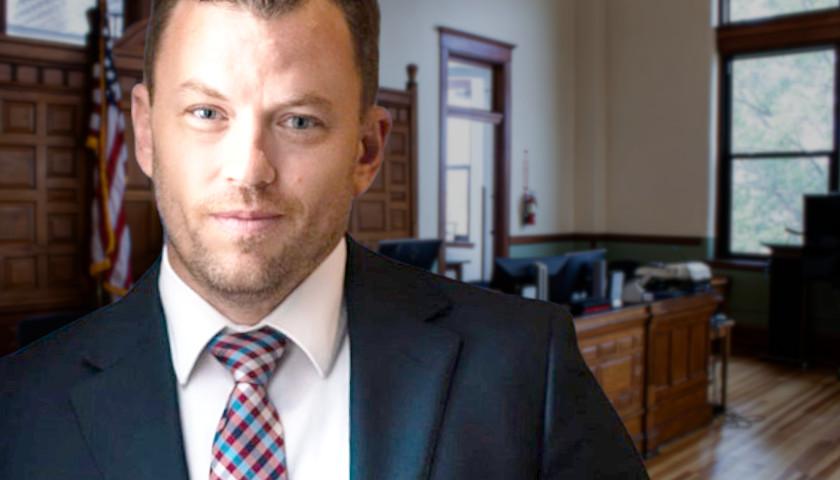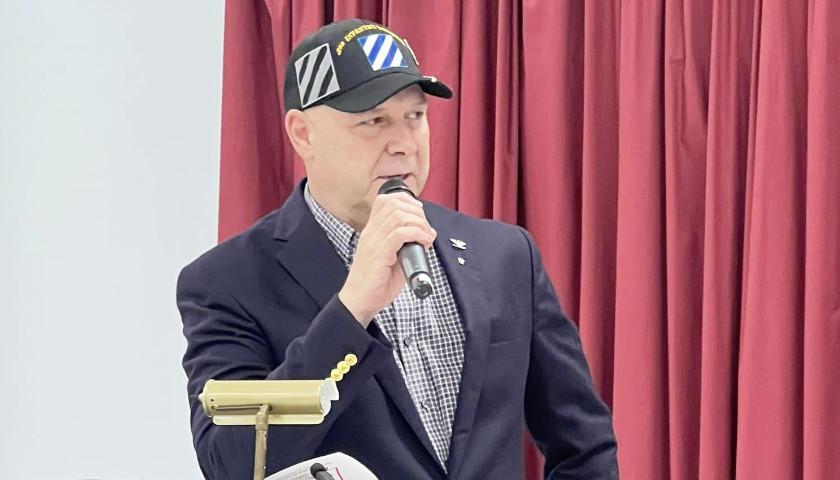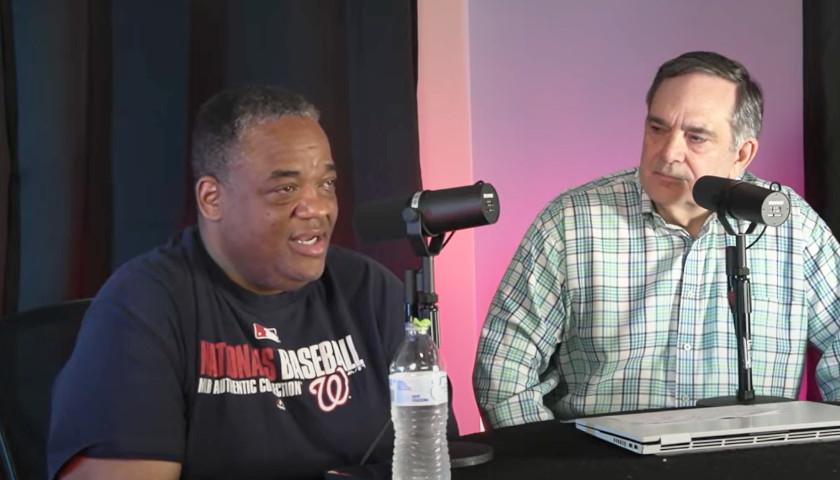Live from Music Row Thursday morning on The Tennessee Star Report with Michael Patrick Leahy – broadcast on Nashville’s Talk Radio 98.3 and 1510 WLAC weekdays from 5:00 a.m. to 8:00 a.m. – host Leahy welcomed the Director of Policy for Beacon Impact Ron Shultis to the newsmakers line to weigh in on the PRO Act bill, occupational licensing, and the pushback it’s receiving from Rep. Diana Harshbarger of Tennessee with her new bill.
Leahy: We are joined now on the newsmaker line by Ron Shultis Director of Policy for Beacon Impact. Welcome, Ron.
Shultis: Good morning. Thank you for having me.
Leahy: Tell us what’s the difference between Beacon Impact and the Beacon Center of Tennessee?
Shultis: Sure. Beacon Impact is our sister advocacy arm of the Beacon Center of Tennessee, which is the state free-market think tank here located in Nashville. Under Beacon Impact is where we do all of our advocacy on bills and trying to support free-market legislation.
Leahy: I think that the Beacon Center is a 501 (c) (3) and Beacon Impact is a 501 (c) (4)?
Shultis: That is correct.
Leahy: One of the bills that you’re talking about is the PRO Act. Tell us what it is and tell us why it’s bad.
Shultis: Sure. So this is one of the many terrible bills going through Congress right now. It’s already past the House. It’s sitting in the Senate. Essentially what it does is it will totally set back our economy in the midst of while we’re having shortages and all kinds of things by doing a couple of items that totally tip the balance in favor of large labor unions.
The first thing that it does is it abolishes the state right to work laws, which essentially would mean if you don’t want to join the union, you would be forced to pay union dues or you could be fired. Currently, in a right-to-work state like Tennessee, it’s your choice whether or not you choose to join the union or not and pay union dues.
So it protects the worker on both ends. If this were to pass, that would no longer be the case. If you chose not to join a union, you would have to force the pay dues whether you choose to or not, or you could be fired. Another thing it could do is totally sit back our gig economy by implementing California is what’s called their ABC Test, which makes it much harder for somebody to work as a gig worker.
Which if you think about, for example, last year during all the lockdowns and shutdowns when so many people had to work as, for example, an Instacart delivering groceries or Uber, that becomes much more difficult. And what that does is it nationalizes what California did, which is obviously never a good thing with their ABC Test. And that’s just a couple of things that it does.
Leahy: That bill is working so well for California. Not. What a disaster that is.
Shultis: Right. Exactly. And when California passed it, you can go back and look into some of the liberal media articles in 2019 about all these writers for liberal publications and Vox complaining and realizing that then they were fired because they were freelance writers.
And then once that passed while living in California, they had to become an employee. And then that place where they would contract with had to let them go.
So they had to add all kinds of exemptions for freelance writers, DJs for weddings, and all that because so many people rose up in arms against it. But the national version, the PRO Act, doesn’t have those extensions. So it’s even worse than what California did.
Leahy: Now here we have a newly elected state representative U.S. Representative named Representative Harshbarger. And she introduced a bill that basically is designed to push back against this kind of stuff. Tell us about that bill.
Shultis: That’s right. She introduced a bill that we’re supportive of. And what it does there are these new grants that the federal government created and states can apply for these grants. But the problem is that sometimes the federal government incentivizes states to adopt bad occupational licensing, which is essentially the government’s permission to do a job.
Well, if you want to get these grants, then you may have to create a new occupational license, which makes it harder for a Tennessean to get that job, which is kind of the exact opposite of the point of these grants. And so what she did is introduced a bill called the Freedom to Work Act, which directs the federal government to review its policies around the Workforce Innovation Opportunity Act grants and say, are we incentivizing states to adopt these unnecessary licenses and repeal those rules and incentives in the system?
And then also, it requires a report to Congress to look for better ways to do so. And when states apply for these funds, they would have to show, how their state like here in Tennessee and how we are working to remove unnecessary regulatory barriers to get a job.
For example, here in Tennessee, we require a government license to do over 100 low-income occupations. In recent years, we’ve gotten rid of some. We used to require a license to shampoo hair, something most of us do every day. It used to require 300 hours of schooling to learn how to shampoo hair as an example.
And so what we could do is show how we remove those barriers, making it easier for people to get to work or get a job, start a business, and qualify for those funds.
Now in a Democrat-controlled House of Representatives, that bill introduced by Representative Harshberger from the First Congressional District of Tennessee. That bill’s going to go nowhere, isn’t it?
Shultis: You would think so. But hopefully, this has one issue around occupational licensing that has gotten some bipartisan support. For example, both the Obama administration and the Trump administration, through the Department of Commerce, have told the state to look at these and peel back some of these requirements.
So hopefully that this is something that both our Democrat House and Senate will take a look at as something that can be, yey, these funds are supposed to make it easier for people to get jobs and how the federal government incentivizing states to make it harder. So hopefully this is something that we’ll get.
Leahy: But, you know, I doubt that there’s a single Democrat co-sponsor of this bill is there?
Shultis: Not that I’m aware of it.
Listen to the full second hour here:
– – –
Tune in weekdays from 5:00 – 8:00 a.m. to the Tennessee Star Report with Michael Patrick Leahy on Talk Radio 98.3 FM WLAC 1510. Listen online at iHeart Radio.
